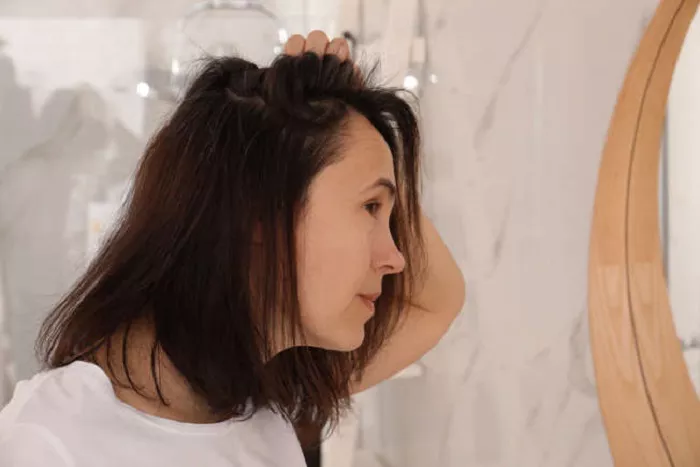If your hairbrush is collecting more strands than usual or your hairline seems to be thinning, you’re not alone. Hair loss affects millions worldwide, but according to Dr. Eric Berg—a leading health educator in holistic wellness—regrowing hair naturally is possible by addressing the root causes inside the body, not just the scalp.
“This isn’t just about stopping hair loss,” says Dr. Berg. “It’s about rebuilding your body so your hair grows back stronger, healthier, and fuller.”
In a recent video, Dr. Berg focused on one of the key culprits of hair loss: sensitivity to dihydrotestosterone (DHT), a potent form of testosterone. While many treatments aim to block DHT, he warns that doing so can lead to negative side effects like low libido, fatigue, and mood changes.
Instead, Dr. Berg emphasizes adjusting your body’s internal balance. Here are his top five strategies to naturally support hair health and encourage regrowth:
Boost Oxygen Flow to the Scalp
Hypoxia—or low oxygen to the scalp—is a hidden but major trigger of hair loss. Dr. Berg identifies common causes, including:
Anemia (especially B12 or iron deficiency)
Inflammation
Lack of physical activity
To combat this, he recommends:
Supplementing with grass-fed liver and methylcobalamin (a bioavailable form of B12)
Addressing low stomach acid with betaine HCl
Exercising regularly to improve blood and oxygen flow
“Get moving—oxygen is fuel for your follicles,” Dr. Berg advises.
Take the Right Amount of Vitamin D
Vitamin D not only reduces inflammation but also desensitizes DHT receptors in the scalp.
“If you want to regrow your hair, start with at least 10,000 IU daily—especially if you’re not getting sun exposure,” says Dr. Berg.
Increase L-Lysine Intake
L-Lysine, an essential amino acid, plays a vital role in protein synthesis and helps regulate DHT sensitivity.
Natural sources include red meat, chicken, fish, and eggs.
“If your diet is mostly plant-based, you may not be getting enough to support healthy hair,” he warns.
Reverse Insulin Resistance
Insulin is an anabolic hormone that promotes growth—including hair. But if your cells are resistant to insulin, its positive effects are blocked.
Dr. Berg recommends:
A low-carb diet
Intermittent fasting
These strategies improve insulin sensitivity and support hair health tips aimed at long-term growth.
Balance Estrogen Levels
For many women, hormonal shifts such as menstruation, menopause, or postpartum periods can lead to estrogen drops and hair loss. Dr. Berg suggests:
Consuming phytoestrogens (e.g., flaxseed, sprouted legumes)
Supporting adrenal health with adaptogens like ashwagandha
Eating healthy fats (egg yolks, butter) to aid hormone production
“Cholesterol is the foundation for estrogen. Without it, your body can’t produce the hormones needed for hair growth,” he says.
Dr. Berg’s holistic method addresses the underlying imbalances—hormonal, nutritional, and metabolic—that contribute to hair loss. His five-step approach offers a medication-free path to naturally restoring hair health.
“True hair restoration begins from within,” he concludes. “Fix the foundation, and your hair will follow.”
Related Topics:
- Eating Fish and Hair Growth: Myth or Backed by Science?
- Japanese Scientists Discover Natural Hair Loss Solution with Plant Extracts
- Finasteride for Hair Loss Linked to Severe Side-Effects


